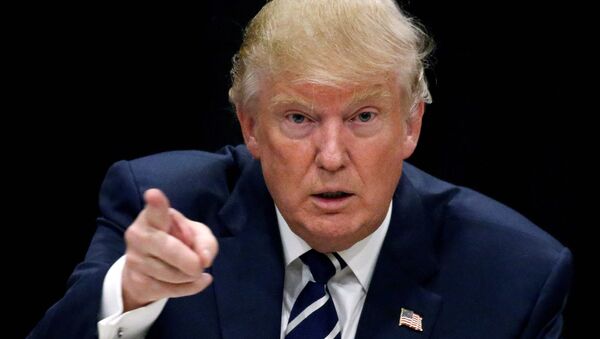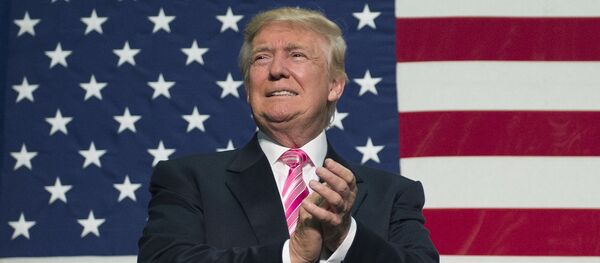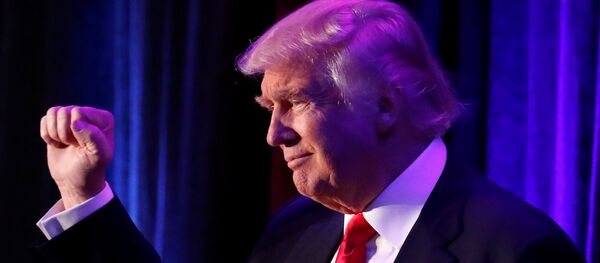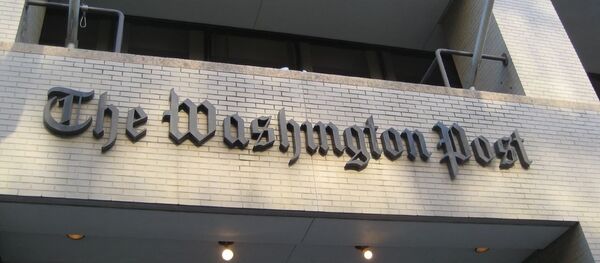Kristian Rouz – The inconsistency of the 'Russian hacks' narrative is best explained through recent developments involving the US energy sector, national governance, and special interests.
The intelligence community, spearheaded by the CIA, was reported on Friday to have concluded that certain individuals linked to Russia’s government have provided Wikileaks with material compromising the Clinton campaign, including the emails from the Democratic National Committee (DNC). The left-leaning mainstream media narrative cheerfully welcomed the news as providing the ultimate hope to prevent Trump from taking office in January.
However, the CIA assessment, which is supported by the other 16 agencies in the US intelligence community, as reported by the Washington Post, brings up several questions.
These include, among others, why the theme of a presumable Russian interference has recently become a revolving issue in America’s media landscape. Foreign policy implications might be one thing, but the DNC hacks could have been carried out by any individual or entity, international or domestic, as Trump himself reiterated, commenting on the narrative for the first time since the presidential debates this autumn.
“I don’t believe they interfered,” Trump said earlier this week, as quoted by Time Magazine. “It could be Russia. And it could be China. And it could be some guy in his home in New Jersey.”
However, on Friday, Homeland Security Adviser Lisa Monaco revealed that President Obama had ordered the intelligence community – specifically – to probe into Russian interference with the election, based on the allegations that first emerged in the left-leaning media earlier this year. These allegations were upheld by the Clinton campaign, which used a noticeably explicit anti-Russian stance in her rhetoric, culminating in the autumn debates.
Thus far, there is not much in this regard, despite months of discussion. A notable exception is a certain ‘consensus’ within the intelligence community that Russia or Russian-backed hacks are a possibility. Yet, even though Hillary Clinton claimed several months ago that 17 US intelligence agencies have ‘proven’ Russia’s interference as a fact, at this point the CIA has only informed key US Senators of their ‘confidence’ that getting Trump into office has been Russia’s objective.
The Washington Post, which, ironically, was once widely known as the ‘Pravda on the Potomac’, reported that the US intelligence community has provided the White House with evidence that Russia had played some role in cyberattacks in at least two states and penetrated the emails of Democrat entities and individuals. However, while the Democratic Party has bandwagoned on the narrative of Trump being a threat to US national security in pursuit of their agenda, undermining the forming Republican monolith of federal governance, the Republicans are not convinced.
“There is no clear evidence even now,” Rep. Devin Nunes (R-CA), chair of the House Intelligence Committee, said. “There’s a lot of innuendo, lots of circumstantial evidence, that’s it.”
The Trump team has repeatedly stated for many months that pulling the US energy sector out of its sorry state is one of the main dimensions of his new economic policy. However, any substantial increase in the US output of energy, including oil and coal, would put downward pressure on global oil prices. Meanwhile, negative dynamics in international oil prices are something Russia, the world’s largest producer of oil, hardly wants.
As for the anti-Trump sentiment in Washington, it can also be attributed to the example of energy, environmentalism and the currently excessive regulation of the economy. In addition to the fierce standoff over the Dakota Access Pipeline, many US oil small-caps are experiencing difficulty, mired in negative profitability, financing complications, debt delinquencies and bankruptcies – let alone the agonising coal industry.
Trump’s pledge to “make America’s energy great again” undermines the regulatory power of multiple bureaucratic institutions within the midst of the US national governance.
Trump’s plan to deregulate the economy and simplify the structure of governance and control will inevitably eliminate the jobs of many well-paid governmental employees. The Trump administration could also negatively affect the financing of many environmentalist non-profits, many of whom have close connections in Washington.
No wonder the Deep State is concerned; however, it's utterly disturbing they are attempting to play the good old ‘Russian card’ in the media narrative without verifying whether the card is actually on the table. After all, Russia might have more important issues to take care of than helping the American people by exposing their corrupt bureaucrats, politicians and special interests.





